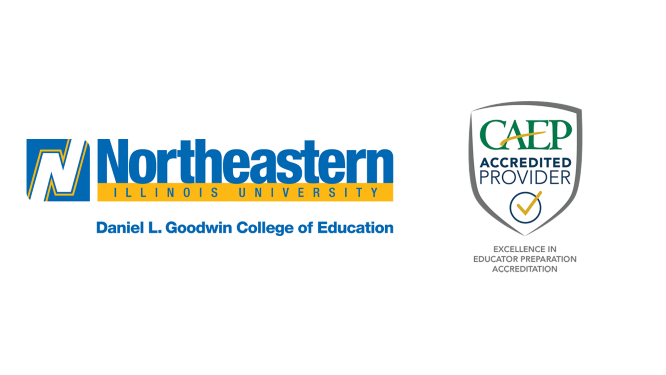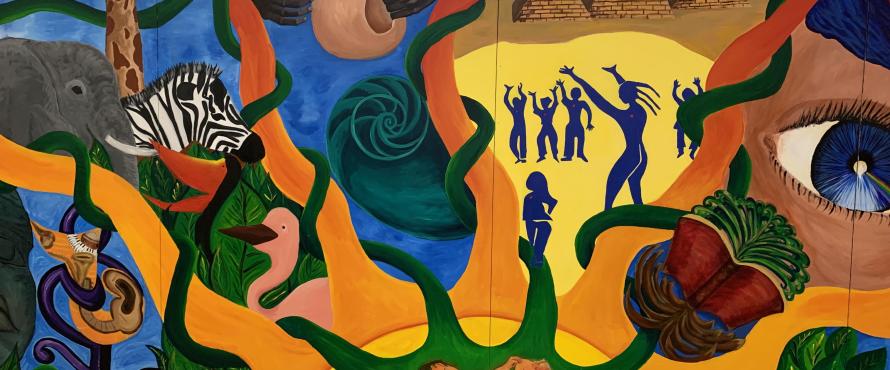Goodwin College of Education Vision Statement
Goodwin College of Education Mission
Goodwin College of Education Goals
The Goodwin College of Education cultivates professionals who:
- Embrace diversity in individuals and perspectives as a source of strength and as the foundation for excellence and innovation in one’s professional practice
- Create equity, inclusiveness and social justice for individuals, groups, communities and organizations
- Anchor excellent professional practice in inquiry, evidence, scholarship, and real world application
- Apply lifelong learning to expand one’s knowledge, abilities, practice, and perspectives
- Create positive change in environments, communities, organizations, and individuals by forging positive relationships with others
Equity, Diversity and Inclusion
Equity, diversity and inclusion are critical to advancing academic excellence and the overall success of our students, faculty and staff. We must not only define these words, we must also be vigilant in our commitment to build and sustain a community that embraces these core values.
Shared Beliefs
Goodwin College of Education’s shared beliefs are reflected in our conceptual framework. The Daniel L. Goodwin College of Education (GCOE) community is proud of its commitment to the exemplary professional preparation of P-12 educators, school and community leaders, counselors, and health care professionals as well as its human resource professionals. Central to this purpose is the guiding belief that professional practice in education should be reflective, collaborative, and personally and socially transformative. Therefore, the GCOE adheres to its conceptual framework, a statement of the fundamental principles to guide our work: Professional Practitioners: Reflective, Collaborative, Transformative.
Reflective
Reflection is the hallmark of professional practice. Bringing an open mind, open heart and inquiry-based approach to the learning experience enables a deeper and often different understanding of our biases, what we know, what we do and toward what purpose. We embrace ongoing critique, discussions with those who think differently from ourselves, and thoughtful examination of our work. The outcomes of our reflective practice are examined not only in relation to the individuals with whom our candidates work, but also to the larger communities, organizations, and agencies in which they are situated. Goodwin College of Education professionals believe that inquiry enhances equity, justice and contributes to more humane and democratic conditions in our schools, communities, organizations, and society. Therefore, we work to develop critical inquiry in our graduates and reflect upon our own work, as well.
Collaborative
Collaboration contributes to new and better ideas and speaks to the value we place upon decisions that affect a wide variety of stakeholders. Collaboration in the Goodwin College of Education occurs on multiple levels: within our departments; throughout our college; across our campus; with P-12 schools; with agencies and organizations; as partners with other universities; with national and international P-12 education, health care, human resources, and counseling communities; and finally, at the global level through international conferences and publishing, technology, and social media. Collaboration in our College reaches into every facet of our daily work and serves as a model of teamwork and professionalism for our students. We strive to graduate candidates with the skills and dispositions to work well with and for others, and who are leaders in bringing diverse constituencies together in inclusive ways to solve problems and bring about positive change.
Transformative
Transformation is a natural outgrowth of learning. Transformation begins with the empowerment of the individual to create a trusting, inclusive space where creative ideas, strategies, solutions and results can emerge. While laying the right conditions for positive change to occur is imperative, it is insufficient for producing positive outcomes. Goodwin College of Education professionals, who serve as change agents in their schools, communities, agencies, and organizations, must also possess a high level of knowledge and skill, including the ability to advocate for a just and democratic society. As well, there must exist the belief that transformation is possible. We strive to develop these abilities in our graduates, and challenge ourselves to take advantage of growth opportunities.
Our shared beliefs translate into six outcomes or expectations for candidates who complete their professional programs with us. These Goodwin College of Education standards include the following:
- Reflects upon students, schools, communities, organizations, agencies, pedagogy, and practice
- Demonstrates the professional competencies and confidence to act upon the insights gained from one’s learning
- Recognizes, understands and values differences among and between people and cultures in a global society
- Fosters change in self, students, schools, organizations, agencies, and communities
- Recognizes, acknowledges and responds to the emerging needs and challenges of a changing world
- Actively participates in one’s professional growth in order to be a stronger advocate for positive professional and/or community change
For more information about our conceptual framework view the Daniel L. Goodwin College of Education's Conceptual Framework.









